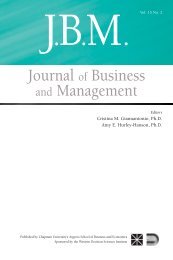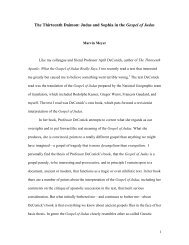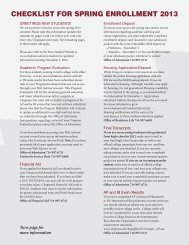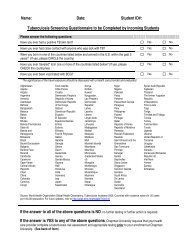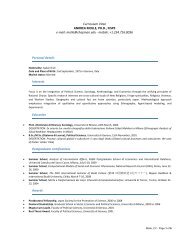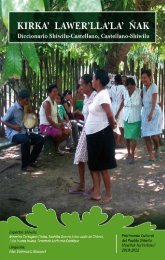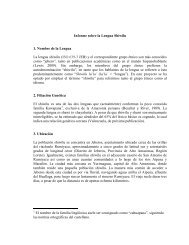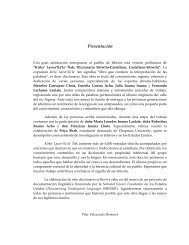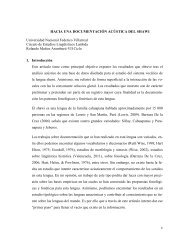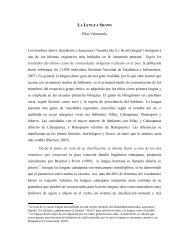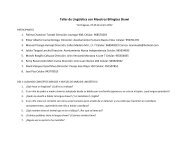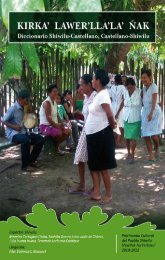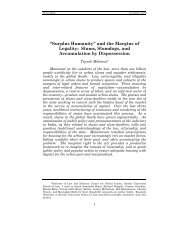Chapman Law Review - Chapman University
Chapman Law Review - Chapman University
Chapman Law Review - Chapman University
Create successful ePaper yourself
Turn your PDF publications into a flip-book with our unique Google optimized e-Paper software.
Do Not Delete 12/7/2011 2:17 PM<br />
40 <strong>Chapman</strong> <strong>Law</strong> <strong>Review</strong> [Vol. 15:1<br />
Bureau can perform its supervisory function. 97 These<br />
requirements could have a variety of effects in fringe markets.<br />
For instance, if only payday lenders are supervised, it could put<br />
other fringe lenders in a better competitive position because they<br />
will be able to avoid the costs payday lenders are paying for<br />
compliance. More generally, capital requirements and<br />
substantial reporting requirements could favor larger firms and<br />
drive mom and pop shops out of business.<br />
It would be easy to underestimate the importance of this<br />
information-gathering function. As David Skeel points out:<br />
The power to investigate and require data may be the most important<br />
power of all. As a scholar seeking data, Warren was not a welcome<br />
presence at the office of the credit card banks. But now banks are<br />
required to open their doors and answer questions about their<br />
business practices. 98<br />
This observation is especially true for fringe banking<br />
operations that have not been subject to examinations like banks<br />
but, for the first time, will have to produce significant amounts of<br />
information for the Bureau.<br />
C. Rulemaking<br />
The Bureau‘s ability to promulgate rules is the least<br />
delimited of its powers, has the least understood power, and has<br />
the greatest potential to affect businesses in the fringe economy.<br />
The Act empowers the Bureau to make rules supporting two<br />
goals: sections 1021(c)(5) and 1022(a) authorize rulemaking to<br />
enforce federal consumer protection laws, 99 and section 1031(b)<br />
gives the Bureau the right to create rules to identify ―unlawful,<br />
unfair, deceptive, or abusive acts or practices . . . .‖ 100 The<br />
Bureau‘s power to write new rules to enforce existing federal<br />
consumer laws might affect fringe lenders, but there is little<br />
room for surprise here as the federal consumer laws are already<br />
on the books and have been implemented by other agencies<br />
writing rules for years. The main effect of this rulemaking power<br />
will be that existing laws will be more stringently enforced.<br />
97 Dodd-Frank § 1024(b)(7)(B).<br />
98 DAVID SKEEL, THE NEW FINANCIAL DEAL: UNDERSTANDING THE DODD-FRANK ACT<br />
AND ITS (UNINTENDED) CONSEQUENCES 112 (2011).<br />
99 Dodd-Frank § 1021(c)(5) (―The primary functions of the Bureau are . . . issuing<br />
rules, orders, and guidance implementing Federal consumer financial law.‖); § 1022(a)<br />
(―The Bureau is authorized to exercise its authorities under Federal consumer financial<br />
law to administer, enforce, and otherwise implement the provisions of Federal consumer<br />
financial law.‖).<br />
100 Dodd-Frank § 1031(b).



